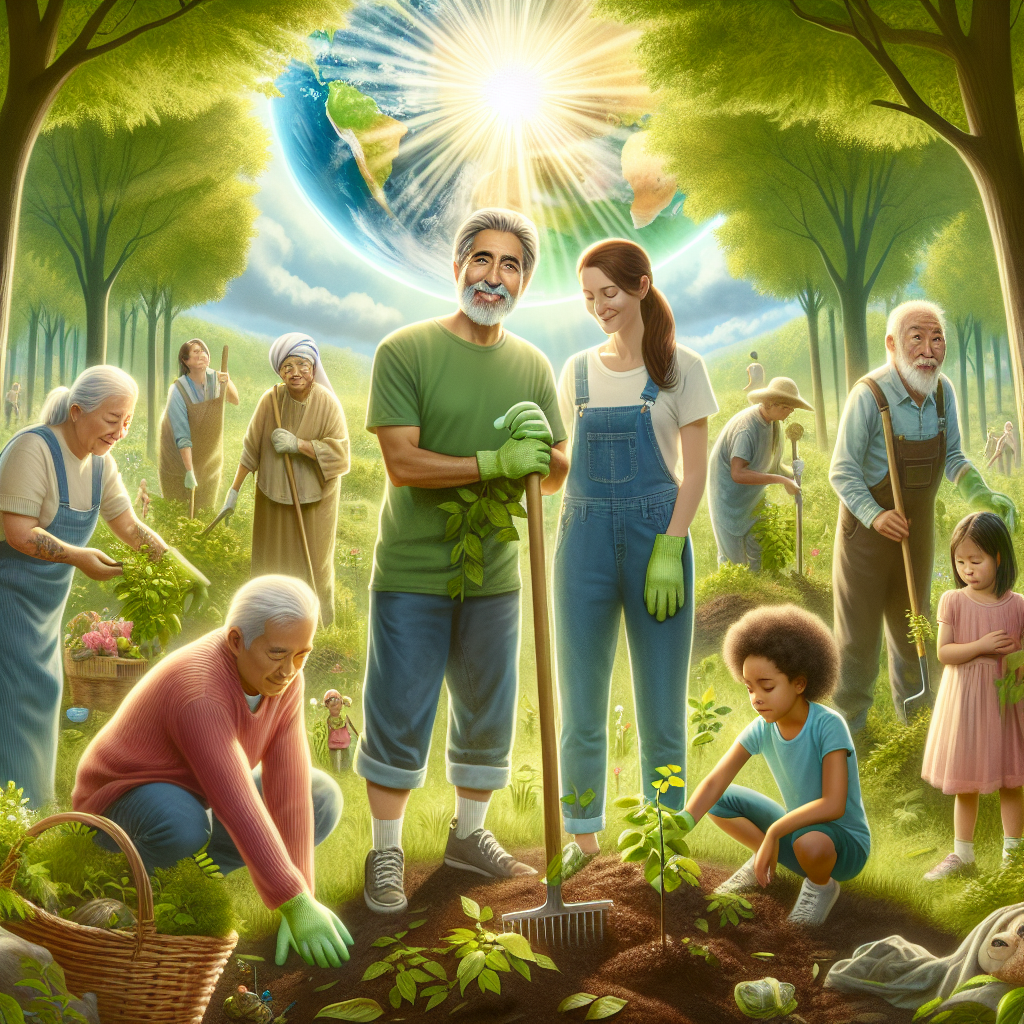Devotional: Divine Stewardship: Embracing Eco-Theology for a Sustainable Future
Opening Prayer
Heavenly Father, we come before You with grateful hearts for the beauty of Your creation. Open our eyes to see Your handiwork in the world around us, and give us wisdom to care for it as faithful stewards. May our hearts be ignited with a passion to protect and preserve what You have entrusted to us. In Jesus’ name, we pray. Amen.
Scripture Reading
“The earth is the Lord’s, and everything in it, the world, and all who live in it; for he founded it on the seas and established it on the waters.” — Psalm 24:1-2 (NIV)
Reflection
Divine stewardship is rooted in the understanding that the Earth and all its inhabitants belong to God. Eco-theology invites us to see the natural world not just as a resource to exploit but as a sacred trust to protect and cherish.
In Genesis 1:26-28, God entrusts humanity with the responsibility to "fill the earth and subdue it" and to "have dominion" over all living things. This dominion is not about domination but rather about stewardship—a partnership with God in the care of creation. Our task is to preserve and sustain the environment, recognizing that every aspect of creation reflects God’s character and creativity.
God’s fingerprints are evident all around us—through the intricate ecosystems that balance life, the majestic mountains that speak of His glory, and the vast oceans that display His power. Each element of the natural world is a testament to His majesty and a reminder of our role as caretakers.
However, the alarming issues of climate change, deforestation, and pollution highlight how we have often failed in our calling. As stewards, we are challenged to acknowledge our missteps and take responsibility for restoring the balance God intended.
Inspiring Action
-
Educate Yourself and Others: Start by learning about eco-theology and environmental issues. Read books, attend workshops, and engage in discussions about how faith and ecology intersect. Share this knowledge within your community.
-
Reduce Your Footprint: Make practical, sustainable choices in your daily life. Opt for reusable bags, reduce water waste, and limit single-use plastics. Choose local, sustainable food options where possible to lessen your impact on the planet.
-
Create a Green Ministry: Engage your church or community group in creating projects that care for the environment, such as community gardens, clean-up events, and educational seminars on sustainability. Use your church’s resources to cultivate a culture of care for God’s creation.
-
Pray for Creation: Integrate prayers for the environment into your personal or corporate worship. Pray for wisdom for leaders, for awareness among individuals, and for the healing of the land.
-
Support Sustainable Initiatives: Choose to support organizations and companies that prioritize environmental stewardship. This might include supporting renewable energy initiatives, ethical farming practices, or conservation efforts.
Closing Prayer
Gracious Creator, thank You for the abundant gift of creation. Help us to honor You through our actions, caring for Your world with grace and respect. Empower us to take bold steps toward sustainability, seeking justice for our planet. May our efforts reflect Your love and glory, restoring the Earth as we journey towards a sustainable future. Amen.
Final Thoughts
As we embrace eco-theology and divine stewardship, let our actions be a reminder that caring for God’s creation is not just a personal responsibility but a collective calling. Together, let us act in faith, inspired by the beauty of His handiwork, to ensure a vibrant, sustainable world for generations to come.
Explore and dig up answers yourself with our BGodInspired Bible Tools! Be careful – each interaction is like a new treasure hunt… you can get lost for hours 🙂


